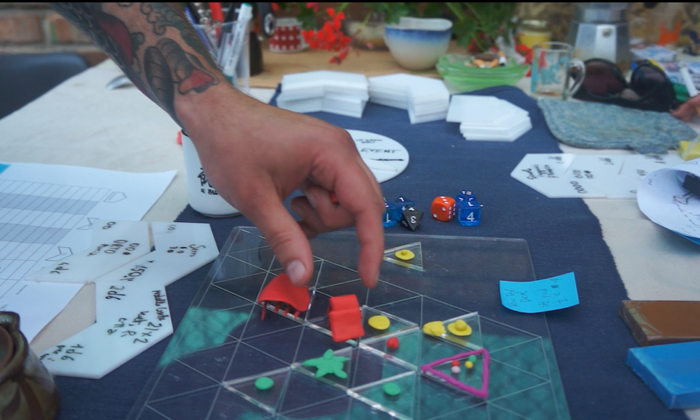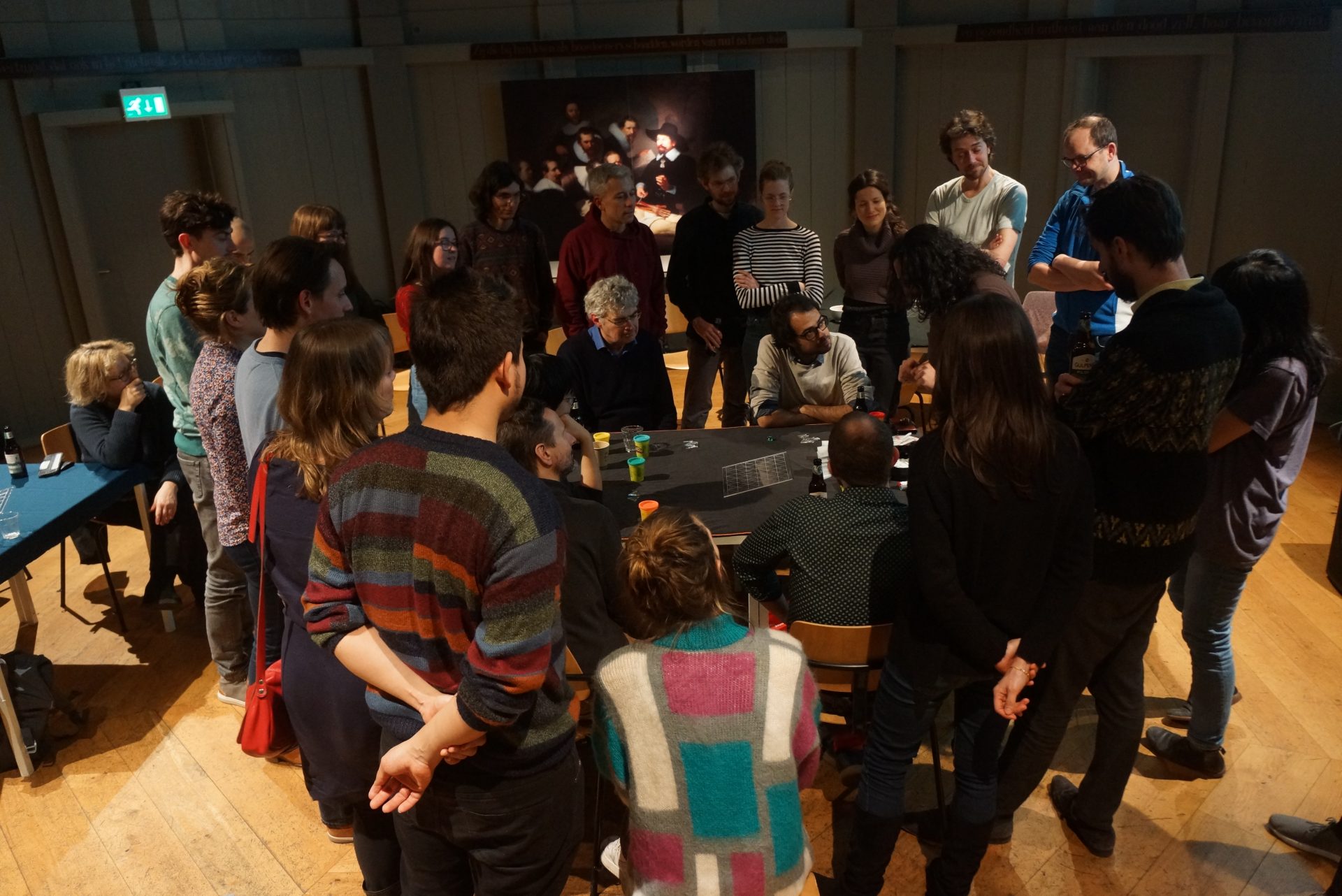When to play
If you want an open-ended tool to help your group imagine new interventions for the betterment of society, play Le Grand Jeu. It works best when focusing on a concrete community, such as an ecovillage or the city of Milan, and the group shares a basic notion of direction (such as ‘working towards circular economy’).
Commons-related features
- Introduction to key conceptsThe game defines basic elements to understand some aspects of the commons (for example, the meaning of private, public and communal).
- Reach a consensusThe game helps participants to arrive at a decision each player can agree with.
- Promote cooperationThe game makes participants collaborate between them others and stimulate the concept of cooperation beyond the game’s duration.
Best contexts to play
- Community participation activityThe game can be a tool to involve people in communitarian and participation activities.
- Multi-stakeholder co-creation sessionThe game can be played to promote a debate with a wide range of actors (a.o. residents, designers or architects).
- Decision-making activityThe game can guide participant decision-making in a variety of contexts, for example by facilitating a voting or consent process.
Gameplay
- ExplorativeThe game lets you experience alternative worlds.
- Interactive/communalThe game incites a continuous exchange of information, ideas or experiences between the players. The game play is really ‘done together’.
- ProvokingThe game incites a reaction from you in relation to the topic of the game (e.g. anger, concern or disappointment).
How to obtain
Le Grand Jeu can be adopted and played freely for non-profit use.
Check the website of the game

